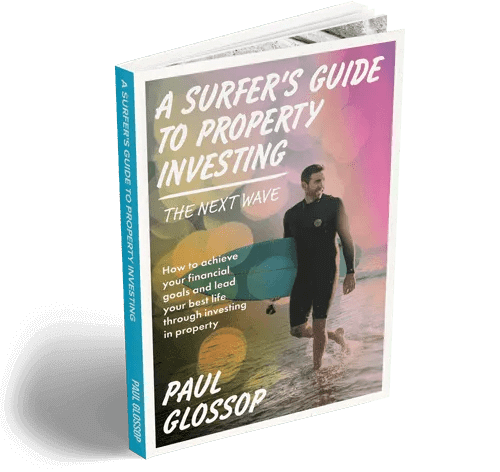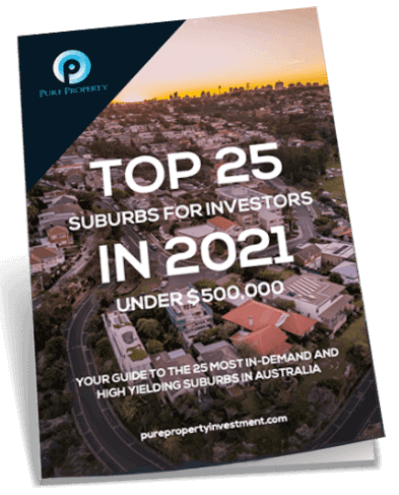It’s All About The Investor

The property investment advisory industry offers up a diverse range of personalities and marketing styles. Some advisors are self-made success stories who build their business profile on the back of long fought and hard-won experience. There are also the ‘altruistic’ types who want to genuinely educate the investor community on the ways real estate can set you up for a comfortable future life. There’s also, unfortunately, opportunists among the ranks who’re motivated primarily by generate their commissions and taking kickbacks.
I sit on the board of the Property Investment Professionals of Australia (PIPA) which is an organisation pushing hard to regulate these sharks away from vulnerable investors. Unfortunately, it’s a big industry and there’s only so much we can do at the moment, so responsibility for avoiding the shysters falls heavily on the shoulders of investors themselves. When you get an opportunity to talk to advisors, I urge you to consider a particular gauge which has served me well in the past.
If someone tells you they’ve discovered THE magic strategy that guarantees success to any investors, I suggest you run away quickly and not look back. Because, in my experience, property selection is about the individual investor, not the investment strategy.
A Bad Fit
The process of building a successful property portfolio doesn’t follow the same path for every single investor, because the important metrics of what to invest, where to invest and the expected outcomes vary between individuals. If making gains in real estate were as easy as one-size-fits-all, we’d all be retired by 30 and taking our private jet to the Maldives.
There are pros and cons to almost every sort of investment approach depending on the stage you’re at in your real estate journey. I’ve seen books which create the illusion that you can build a huge multi-property portfolio by adopting a singular approach. ‘Just buy new duplexes’ or ‘Only look for unapproved development sites’ or ‘Never buy new units’ or ‘Always but new units’… the list of contradictions seems endless.
In truth, most strategies have a mix pros and cons when it comes to things like yield, value gains, tax advantages, development profits and so on.
My opinion is it’s not the investment, but the investor that matters.
Begin With A Plan
When you start out in property investment, your guidelines on that first purchase will be set by a frank and fearless assessment of your financial position.
You need to know your number on your available cash flow and how much the bank will lend you. This is where a talented, experienced mortgage broker really comes to the fore.
Now, sometimes your start in your 20’s with no dependants and a modest wage. This type of investor may need to consider a slightly higher yield to help service the debt, but they have time on their side and can afford to wait for long-term capital gains. They’re probably going to see their wages rise in the future which will boost their borrowing power. No need to chase blue-chip just yet I’d have thought.
What if you’re starting in your 30’s? You might have paid down some home loan – not much but enough for a deposit on an investment. Alternatively, you may have actually been renting for a while now and don’t want to move – perhaps rentvesting is going to be part of your plan. You might be in a serious relationship but finances aren’t yet combined. Perhaps you still need some decent yield but can do a little renovation too. A middle ring character home might suit your style.
In your 40’s your wages are starting to look very healthy and you might decide on a little tax planning and depreciation benefits as part of your considerations. There could be two incomes in the house, but young kids with schooling costs to allow for – how is that affecting your cash flow? Is there the chance to look at doing a small development project so you can realise a decent profit for future investing? Is a joint venture on the cards?
Heading toward retirement years, you might want to reduce debt but also acquire higher yields to pay for that long planned around-Australia trip? You don’t want the high stress of managing a portfolio either, so simplified investing away from the rigours of development would be essential. You might even look toward locking down a commercial holding at this stage.
The Long Game
My point is that the idea just one strategy or property type is the gold-standard for success is ludicrous. Rigid adherence to one style of investing is reckless and inefficient.
Property investing toward a desired goal is an active pursuit that has you following a plan but retaining the ability to pivot as life’s circumstances alter. It’s how opportunities are captured and returns maximised… and diversity in your strategy is sure to be a result.
Happy hunting.
Evolutionary Investing

There a really cool graphic called “The evolution of man” that I want you to recall. It’s the one which tracks our species progressive elevation from slack-shouldered apes to majestically-upright homo sapiens.
I’ve often seen this picture and thought about how this Darwinian theory really does apply to all sorts of life’s element… including investing.
I thought it was time somebody told the story about the evolution of the investor – with their tongue placed firmly in their cheek – why not me?
By the way – to enjoy the full force of what I’m offering, you really should read this blog with David Attenborough’s voice narrating in your head…
And so, it begins…
First time investors have similar needs. They’re eager and engaged – even playful – quick to learn and keen to become part of the pack.
First timers are generally inexperienced and will require both guidance and understanding from more seasoned members of their community.
For the first timer, simple initial steps into the property jungle are necessary.
These novices often need to watch their finance position, and require an opportunity to establish their credentials as a reliable borrower before they can move up the pecking order.
Property-wise, it should be nothing too complex. A well-located unit or house with a solid potential renter base and above average yield is their best environment – with great long-term upside in value an absolute must.
Rental returns should be strong to allow some income buffer straight away. In addition, a holding with some opportunity to improve value through renovation or future small development is always handy.
Emerging from the trees
As they graduate beyond this initial holding, the investor will look to become more adventurous.
Armed with the practical knowledge of how to locate, negotiate, secure and maintain that first investment, the second-property buyer will look to replicate their success. They may choose to stay close to their comfort zone, picking similar properties to the first, but all with a view of doubling or tripling their outcomes.
Their position in the investment lexicon now established, they occupy a thrilling space in the sector where the possibilities seem endless.
Straightening up
With a few runs under their belt, the investor will begin to seek more adventure with their holdings and look to acquire bricks and mortar with a bigger potential twist.
These are properties where, with a little imagination, they can make some impressive additional dollars. Expect this more experienced species to seek larger blocks with long-term redevelopment potential, or units in small complexes where the Gross Floor Area is being underutilised.
These more experienced investors have a distinct financial advantage over their often-younger, less experienced counterparts. They have battled for their financial supremacy and, as victors, now have their choice of the most fertile property options.
Leading the pack
Given their years spent navigating the nuances and hurdles around basic property investment, the next genome of investor will be keen to get their hands dirty and blaze a path to success that other might follow.
Small development projects will fall within their spectrum as they gain proficiencies in splitter block, speculative home ventures and even unit and townhouse projects.
The savviest and well planned among them will have bought smart in the early part of their investment journey. For these forward-thinking investors, looking back at a well purchased initial holding will reveal a potential development prospect they can now turn to profit.
These kings and queens of the property jungle will also seek new frontiers in finance, often building on an already established symbiotic relationship with a mortgage broker to help guide them past the pitfalls of unearthing development funding.
Species Crossover
Perhaps the most exciting stage for any investor is when they break free of their current community and venture even further into the complex but profitable realms that sit beyond the simple residential space.
These investors will look to make their mark, often beginning with a simple industrial shed holding, but also capable of growing toward larger scale office and retail deals if the funds allow.
For some, it’s impossible to say goodbye to the sector that’s served them so well. As such, some find a compromise in advanced residential options and look to acquire a block of flats, or even decide on a joint venture arrangement to try their hand at multi-level unit schemes.
They may even choose to experiment with structure, using funds from their superannuation or family trust structure to maximise their outcomes.
Throughout the journey, the investor evolves along with their property portfolio, but always with the long-term in mind.
The best investors help elevate their community as a whole, providing a beacon of success for others to follow.
When you next come across one of these investors in their natural habitat, take time to observe how they make the most of their surroundings. You might learn something useful.
Happy hunting!
Paul “Attenborough” Glossop
The Two Biggest Lessons In Real Estate Investment
 When talking to first time investors there are multiple misconceptions to address and numerous lessons to teach.
I’m about to reveal the two biggest concepts that propel average real estate owners from being dabblers into forging a life where their free time isn’t eroded by earning a steady wage.
They are fundamental instructions that not everyone understands straight away. Really grasping onto these will ensure you can forge your path and stay the course – even when the challenges of property investment have you feeling like you might come undone, cut your losses and chuck it in.
These are the facets that will help you, ‘remember to breath’ (more about that later).
Lesson 1: Get rich slow
Talk to a group of buyers who were fortunate enough to acquire a good-quality holding in Sydney between 2009 and 2012.
Now, a percentage of those are experienced souls who have been at this game for a while. They’ve seen the ups, downs and sideward of the market and realise quick bursts of capital growth can be followed by extended periods of flat performance.
Unfortunately, among you the surveyed crowd, there will also be plenty of others for who this period of growth was their first. They’ll be applauding their ‘clever strategic approach’ and congratulating themselves on having superior research skills. These are usually first- or second-time landlords who got in at the right moment and have seen their property’s value rise by 50 per cent to 70 per cent in a short period. This crew is unfortunate because their psyche is now ingrained with the opinion that making money in real estate is both easy and fast.
Recent value gains in our biggest capital city have been extraordinary and profitable, but don’t for one minute believe they are the norm. Annual growth in the double digits is a brilliant thing if you buy early, but serious wealth comes from long term investing.
The dangers are real. I’ve heard of a number of investors without guidance who adopt the mantra “Buy, refinance, buy, refinance, buy, refinance…” with scant regards to their financial resilience, the market they’re in and the cycle stage it occupies. Markets turn (as you’ve no doubt noticed) and those who overextend their finance to keep riding this one-way ladder will find once they run out of rungs there is only a single way down – and it’s hard and fast.
In my experience, you must hold a property for an absolute minimum of ten years before you start to see established value growth… and this is a minimum.
Take a look at Brisbane. It’s a market with exceptionally good fundamentals including affordability and lifestyle, plus economic and population growth. Since 2008, Brisbane property has put in one of it’s least impressive decade-long performances in memory. During that time, there will have been those who speculated on a purchase only to sell within five years because the gains weren’t as good as Sydney or Melbourne. What an error to make.
Despite the perceived lukewarm market over those 10 years, Brisbane has seen median price growth of almost 40 per cent. While that may not sound extraordinary, it was during a time when a major flood event occurred, and the fallout of the post mining boom hit property prices.
So, despite the troubles, Brisbane investor who’ve waited are still well ahead … and best of all, the fundamentals look extraordinarily good for the next few years.
Lesson 2: Compound wealth
This is, without doubt, one of the single greatest financial lessons new investors can add to the quiver of learnings.
Compound growth builds phenomenal financial outcomes. There are two elements to remember here.
Firstly, by holding a property over the long term, you are effectively reinvesting the equity to build more value. Let’s use a simple, super-conservative example.
If you buy a property today for $500,000 in an area growing by a very modest average of five per cent a year, that doesn’t mean you will make $25,000 per year over the next ten years. Compound growth recognises that you will be ‘reinvesting’ that $25,000 from the first year so you will now be holding an asset worth $525,000 that will grow another five per cent in year two.
You now own an asset worth $551,240 that will grow again by five per cent. See where we’re going here? I’ve done the decade-long numbers for you.
If you were just making a five per cent non-compounded gain of $25,000 a year on your $500,000 investment, at the end of 10 years your holding is worth $750,000. But if you allow for the ‘reinvestment’ value of compounding, those same figures will see that asset be worth $814,447. That’s a compounding bonus of almost $65,000 in an underperforming market for doing very little.
The second element of compound growth is even better, because you add to that the boost of holding multiple properties AND being more strategic in your purchases. If you owned a portfolio valued at $3 million, and its compounding under the same modest rules above, in 10 years it will be worth $4,886,684 – an almost $1.9 million gain. That’s a pretty handy chunk of change.
Now imagine you are holding these properties through two or three of these cycles. The potential for upside is mind blowing. For well informed and highly diversified investors, there is also the chance to buy at the right stage in the cycle by not limiting yourself to one location but looking nationwide.
I realise there are variables and nuances in real life that need to be tackled, but for this exercise it’s important to be aware of why long-term strategic investment yields extraordinary results.
Why these lessons are crucial?
Armed with this knowledge, a savvy investor knows how to take a long-term view of their portfolio especially when things look dire. As I like to say… Remember to breath!
When you hit a bump in the road, stop, gather your thoughts and concentrate on the long game strategy. You are not in this for the short haul, but rather to reap the rewards in decades to come.
Markets rise slowly, growth compounds and, in the end if you stay the course, you will be looking back on your decision to remain in the game as one of the wisest moves of your life.
Just remember to breath.
Happy hunting.
When talking to first time investors there are multiple misconceptions to address and numerous lessons to teach.
I’m about to reveal the two biggest concepts that propel average real estate owners from being dabblers into forging a life where their free time isn’t eroded by earning a steady wage.
They are fundamental instructions that not everyone understands straight away. Really grasping onto these will ensure you can forge your path and stay the course – even when the challenges of property investment have you feeling like you might come undone, cut your losses and chuck it in.
These are the facets that will help you, ‘remember to breath’ (more about that later).
Lesson 1: Get rich slow
Talk to a group of buyers who were fortunate enough to acquire a good-quality holding in Sydney between 2009 and 2012.
Now, a percentage of those are experienced souls who have been at this game for a while. They’ve seen the ups, downs and sideward of the market and realise quick bursts of capital growth can be followed by extended periods of flat performance.
Unfortunately, among you the surveyed crowd, there will also be plenty of others for who this period of growth was their first. They’ll be applauding their ‘clever strategic approach’ and congratulating themselves on having superior research skills. These are usually first- or second-time landlords who got in at the right moment and have seen their property’s value rise by 50 per cent to 70 per cent in a short period. This crew is unfortunate because their psyche is now ingrained with the opinion that making money in real estate is both easy and fast.
Recent value gains in our biggest capital city have been extraordinary and profitable, but don’t for one minute believe they are the norm. Annual growth in the double digits is a brilliant thing if you buy early, but serious wealth comes from long term investing.
The dangers are real. I’ve heard of a number of investors without guidance who adopt the mantra “Buy, refinance, buy, refinance, buy, refinance…” with scant regards to their financial resilience, the market they’re in and the cycle stage it occupies. Markets turn (as you’ve no doubt noticed) and those who overextend their finance to keep riding this one-way ladder will find once they run out of rungs there is only a single way down – and it’s hard and fast.
In my experience, you must hold a property for an absolute minimum of ten years before you start to see established value growth… and this is a minimum.
Take a look at Brisbane. It’s a market with exceptionally good fundamentals including affordability and lifestyle, plus economic and population growth. Since 2008, Brisbane property has put in one of it’s least impressive decade-long performances in memory. During that time, there will have been those who speculated on a purchase only to sell within five years because the gains weren’t as good as Sydney or Melbourne. What an error to make.
Despite the perceived lukewarm market over those 10 years, Brisbane has seen median price growth of almost 40 per cent. While that may not sound extraordinary, it was during a time when a major flood event occurred, and the fallout of the post mining boom hit property prices.
So, despite the troubles, Brisbane investor who’ve waited are still well ahead … and best of all, the fundamentals look extraordinarily good for the next few years.
Lesson 2: Compound wealth
This is, without doubt, one of the single greatest financial lessons new investors can add to the quiver of learnings.
Compound growth builds phenomenal financial outcomes. There are two elements to remember here.
Firstly, by holding a property over the long term, you are effectively reinvesting the equity to build more value. Let’s use a simple, super-conservative example.
If you buy a property today for $500,000 in an area growing by a very modest average of five per cent a year, that doesn’t mean you will make $25,000 per year over the next ten years. Compound growth recognises that you will be ‘reinvesting’ that $25,000 from the first year so you will now be holding an asset worth $525,000 that will grow another five per cent in year two.
You now own an asset worth $551,240 that will grow again by five per cent. See where we’re going here? I’ve done the decade-long numbers for you.
If you were just making a five per cent non-compounded gain of $25,000 a year on your $500,000 investment, at the end of 10 years your holding is worth $750,000. But if you allow for the ‘reinvestment’ value of compounding, those same figures will see that asset be worth $814,447. That’s a compounding bonus of almost $65,000 in an underperforming market for doing very little.
The second element of compound growth is even better, because you add to that the boost of holding multiple properties AND being more strategic in your purchases. If you owned a portfolio valued at $3 million, and its compounding under the same modest rules above, in 10 years it will be worth $4,886,684 – an almost $1.9 million gain. That’s a pretty handy chunk of change.
Now imagine you are holding these properties through two or three of these cycles. The potential for upside is mind blowing. For well informed and highly diversified investors, there is also the chance to buy at the right stage in the cycle by not limiting yourself to one location but looking nationwide.
I realise there are variables and nuances in real life that need to be tackled, but for this exercise it’s important to be aware of why long-term strategic investment yields extraordinary results.
Why these lessons are crucial?
Armed with this knowledge, a savvy investor knows how to take a long-term view of their portfolio especially when things look dire. As I like to say… Remember to breath!
When you hit a bump in the road, stop, gather your thoughts and concentrate on the long game strategy. You are not in this for the short haul, but rather to reap the rewards in decades to come.
Markets rise slowly, growth compounds and, in the end if you stay the course, you will be looking back on your decision to remain in the game as one of the wisest moves of your life.
Just remember to breath.
Happy hunting.Why Property Is A Game Of Finance

Real estate investment can seem like a complex beast. Ask anyone who has done the deep dive into gaining a property education and you might find they became lost in the wilderness of information, struggling to find a path through the thickets of data and analysis.
But there’s one facet of investment that is arguable one of the most crucial and least understood when you’re first learning about bricks and mortar – particularly as this element can make or break your future. It can keep plans on track, or have them derailed and careening towards almost certain disaster.
In the rule book of real estate, property really is a game of finance.
Why the numbers matter
Before you even open your first book about real estate or begin a google search of property forums, the very first set of analysis all investors must undertake is to determine their ability to borrow funds and service loans.
It makes no sense to disappear down the rabbit hole of research if you can’t gather the dollars.
So, your financial capacity is the determining factor.
First and foremost, run your household budget and do your spreadsheet of assets and liabilities.
Preferably tackle these exercises under the watchful guidance of a mortgage broker who has experience in the investment field.
By setting out these salient figures, an investor can work out if they can afford a loan and, if so, how much they are able to invest. It makes no sense to be all over the property portals trying to find excellent options in Bondi Beach, Sydney if you budget only extends to Coopers Plains, Brisbane.
Your time is valuable. I’ve seen potential investors become exhausted by the options because they lose themselves in information about locations, price points and market sectors that are, frankly, well beyond their financial capability.
Save yourself the stress and do your finances first.
Prepare to succeed
Once you’ve gone through the exhaustive exercise of finance, you have a distinct advantage over others when it comes to jumping on unexpected opportunities.
Getting finance approved can be a struggle, but once you’ve done the hard yards you’ll have cleared a hurdle that allows you to take the driver’s seat when securing a property.
One of the best aspects of using a buyers’ agent is our ability to secure off-market deals for clients. Many times, these come across our desk because of the relationships we’ve formed with agents in our areas of interest. They will have a holding where the owner is keen to sell and will take a discount to avoid wasting time.
When a deal is presented before it hits the market, and it meets all the criteria of a great option, you want to move fast to lock it down.
Being finance ready gives you, the buyer, that comfort. You can go in with a cash offer knowing the bank has already approved you for a loan.
It’s one of the best way to profit from property, because that discount means you have a little extra equity in the holding right from the get go.
Two top tips
When it comes to finance there are two key mistakes many investors make when they aren’t operating under the guidance of experienced advisors.
One – they forget to factor in life’s big financial events.
If you go all-guns-blazing into a 30 years strategy based purely on your current position, there can be grief to come.
You need to make plans so as to afford and enjoy life outside of the investment loan. If the kids are due to head off to private school soon, this must be factored in to your figures. If you and your spouse are thinking about starting a business in the next two years – congrats, but your family’s cash flow could be running dry for a stretch.
Life keeps moving – make sure you mitigate the pain by doing a proper job of allowing for future events.
My second tip is to expect the unexpected.
Interest rates can change, rental demand can drop and even the best of us can be out of work. While these unfortunate events might be beyond your control, there is a way to soften the blow via your finance.
Buffers should be an essential element of your financial process. You must factor in tolerances – particularly with your cash flow – so that should the worst happen, you’ll be ready to address the shortfalls.
I believe smart investor will ensure they can service at least six months of essential operating costs including household’s expenses and loans. Kept in an offset account against your PPOR, your buffer will provide the benefit of a reduced interest, but still be liquid funds on hand to keep you financially afloat if needed.
Budget smudget
While I’m all for being across the numbers from a finance perspective, I also don’t believe in having your lifestyle hamstrung by a strict home budget once you’ve got your processes up and running.
In my opinion, most well-informed households that set up an initial financial plan grow accustomed to their essential spending and, in time, find that they don’t need to strictly account for every dollar just to stay ahead.
Get smart with your figures and you’ll eventually and automatically be able to manage your wallet without having to check the spreadsheet each day.
Seek professional help
Tackling finance early means you understand where the line in the sand sits when it comes to purchase price and rental return on your investment property.
With these important numbers in your grasp you can begin to research investment options that fall within your financial capabilities.
I believe the best move you can make is to surround yourself with trustworthy, experienced advisors such as a mortgage broker, property investment advisor and buyers’ agent who can guide you safely through the landscape of investing and finance. These folks are essential members of the dream team that’ll reduce your risks and boost your outcome.
Happy hunting!






